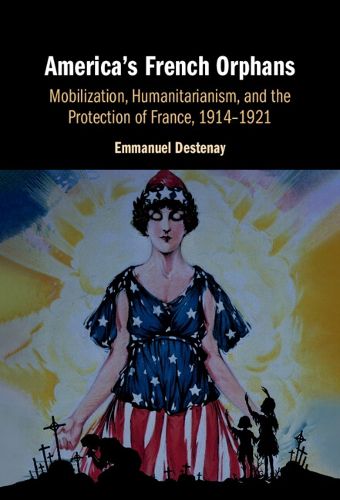Readings Newsletter
Become a Readings Member to make your shopping experience even easier.
Sign in or sign up for free!
You’re not far away from qualifying for FREE standard shipping within Australia
You’ve qualified for FREE standard shipping within Australia
The cart is loading…






During and after World War I, two humanitarian organizations galvanized the support of American men, women, and children to provide for France's children. Between 1914 and 1921, the Committee Franco-American for the Protection of the Children of the Frontier (CFAPCF) and the Fatherless Children of France Society (FCFS) capitalized on the generosity of Americans who believed that supporting a French child in need was seen as a moral and patriotic duty. Through a network of twenty-eight colonies - private homes and estates loaned for this specific purpose - the CFAPCF rescued, sheltered, and cared for children from invaded and occupied war zones, while the FCFS asked Americans to sponsor France's children of the war dead. Combining cultural, political, and diplomatic history, Emmanuel Destenay charts the rapid growth of these organizations and brings to light the unparalleled contribution made by Americans in support of France's children in time of war.
$9.00 standard shipping within Australia
FREE standard shipping within Australia for orders over $100.00
Express & International shipping calculated at checkout
During and after World War I, two humanitarian organizations galvanized the support of American men, women, and children to provide for France's children. Between 1914 and 1921, the Committee Franco-American for the Protection of the Children of the Frontier (CFAPCF) and the Fatherless Children of France Society (FCFS) capitalized on the generosity of Americans who believed that supporting a French child in need was seen as a moral and patriotic duty. Through a network of twenty-eight colonies - private homes and estates loaned for this specific purpose - the CFAPCF rescued, sheltered, and cared for children from invaded and occupied war zones, while the FCFS asked Americans to sponsor France's children of the war dead. Combining cultural, political, and diplomatic history, Emmanuel Destenay charts the rapid growth of these organizations and brings to light the unparalleled contribution made by Americans in support of France's children in time of war.